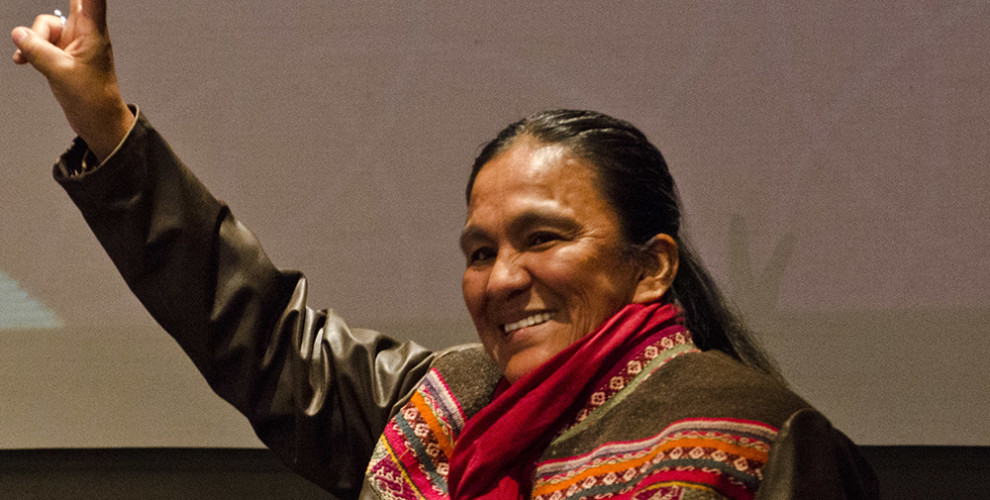Indigenous leader Milagro Salas sent to house arrests
After three years in ‘preventive’ detention, the Argentine indigenous leader was sentenced to house arrests.
After three years in ‘preventive’ detention, the Argentine indigenous leader was sentenced to house arrests.

After suffering three years in preventive detention, the well-known Argentine indigenous leader of the Tupac Amaru Movement and parliamentarian of the Parlatino (Latin American regional parliament) Milagro Sala was finally transferred, on December 29, to her home in northern Jujuy. She has been put under house arrest conditions controlled by an electronic bracelet.
The awaited judicial decision has been produced after the acquittal of Milagro Salas of serious accusations in two consecutive trials. Still pending are other trials directly related to the indigenous leader’s constant political and social activities of civil disobedience.
The long stay in "preventive" prison of Milagro Salas had sparked an important campaign of solidarity in her favor, both within her country and worldwide, which included a resolution of the Inter-American Court of Human Rights. The latter was ignored both by the Government and by the Argentine justice, despite being binding for that country.
The reaction of the Governor of the State of Juguy, and Salas's chief accuser, Gerardo Morales, a typical local cacique who sells his support to the central government dearly regardless of his political orientation, has been bitterly criticizing the decision of the judicial system, which for once did not obey his dictates.
The declarations of Milagro Salas, when leaving the jail to go to her domiciliary prison, were in that sense: “It seems there is a light of hope There are judges who are not letting themselves be but under pression”.
And true and consistent with her actions, Salas went a lot further by adding: "I thought we were in a democracy, but clearly that’s not the case.”